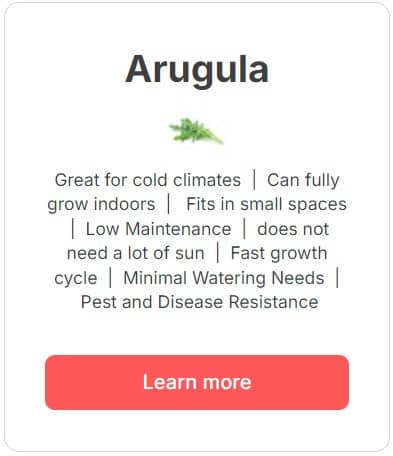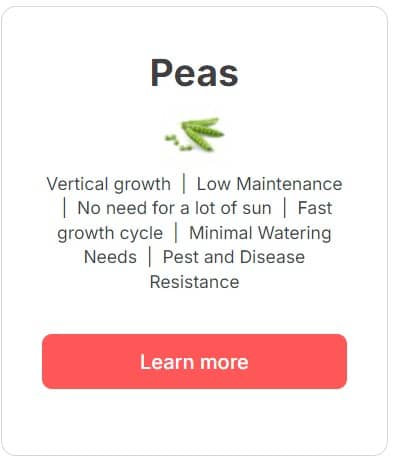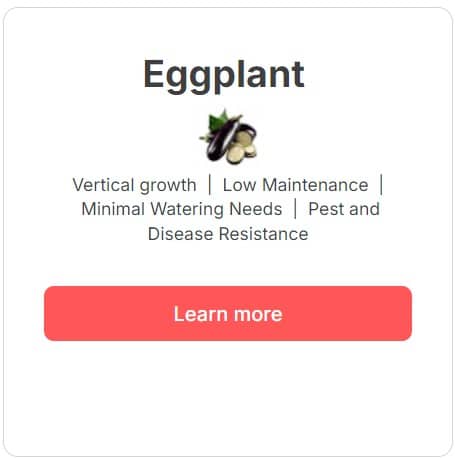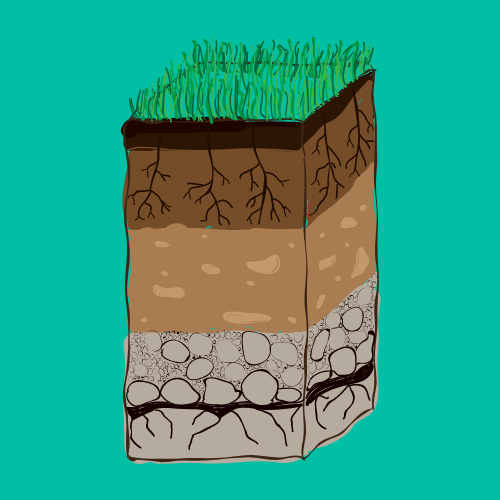Top Disease and Pest Resistant Vegetables [Full Guide]

Creating a garden that thrives with minimal pest and disease issues is every gardener’s dream.
Growing vegetables that are naturally resistant to common pests and diseases not only reduces the need for chemical treatments but also makes gardening easier and more rewarding.
In this guide, we will discuss the top vegetables that are known for their natural resistance, making them ideal choices for a resilient and low-maintenance garden.
Get our Gardening Buddy and find veggies that fit your conditions best.
You Can Grow It!
Spinach
Spinach is a fast-growing leafy green that has natural resistance to many common pests and diseases.
Its quick growth cycle means it spends less time in the garden, reducing exposure to potential threats. Spinach also contains compounds that deter some pests, making it an easy vegetable to grow without frequent pest control measures.
Spinach’s disease resistance includes a tolerance to downy mildew, which is often a problem for leafy greens.
Onions
Onions are known for their pungent aroma, which is a natural deterrent for many pests.
Their strong sulfur compounds make them less appealing to insects like aphids and caterpillars. Additionally, onions are resistant to many soil-borne diseases, making them a reliable crop to grow in various garden conditions.
Onions can also be used in companion planting to help protect other vegetables from pests.
Broccoli
Broccoli is part of the brassica family and is naturally resistant to several pests and diseases.
Its thick leaves and sturdy structure make it less susceptible to insect damage. Broccoli is resistant to diseases like clubroot, which affects many other brassicas, and its resilience makes it an excellent choice for an organic garden.
Using row covers can further enhance its resistance by keeping pests like cabbage worms away.
Kohlrabi
Kohlrabi is another member of the brassica family that shows strong resistance to pests and diseases. Its unique bulbous stem is less appealing to pests compared to leafy brassicas, and it is resistant to common brassica diseases like black rot.
Kohlrabi’s fast growth also means it spends less time in the garden, minimizing its exposure to pests and diseases.
Cabbage
Cabbage is known for its dense head, which provides some natural protection against pests.
While cabbage can attract pests like cabbage worms, it is generally resistant to diseases such as black rot and fusarium wilt. Planting cabbage with companion plants like thyme or dill can further deter pests and enhance its natural resistance, making it a reliable crop for low-maintenance gardening.
Radishes
Radishes are quick-growing root vegetables that are naturally resistant to many common garden pests.
Their rapid growth means they are harvested before many pests have a chance to cause significant damage. Radishes also have a natural resistance to diseases like clubroot and powdery mildew.
Additionally, radishes can be used as a trap crop to protect more vulnerable vegetables by attracting pests away from them.
Leeks
Leeks are part of the allium family and, like onions, are naturally resistant to many pests due to their strong aroma.
Leeks are also less prone to soil-borne diseases, making them a low-maintenance crop.
Their resistance to pests like onion maggots and their ability to thrive in various soil conditions make leeks an excellent addition to a disease-resistant garden.

Arugula
Arugula is a leafy green that grows quickly and has a natural resistance to many pests due to its peppery taste.
Most pests find arugula less palatable, which helps reduce insect damage. Arugula also shows good resistance to common leaf diseases, making it an easy crop to grow without the need for chemical treatments. Its quick growth cycle further reduces the likelihood of prolonged pest exposure.

Beets
Beets are root vegetables that are naturally resistant to many pests and diseases.
Their underground growth helps protect them from insects, while their leaves are less attractive to pests compared to other leafy greens. Beets also show resistance to diseases like leaf spot and downy mildew.
Their ability to grow in a wide range of conditions makes beets a versatile and resilient crop for any garden.
Carrots
Carrots are naturally resistant to many pests, especially when grown in well-drained soil.
Their underground growth helps protect them from above-ground pests, and carrots are less prone to diseases like powdery mildew and leaf blight.
Carrots benefit from companion planting with herbs like rosemary and sage, which can help repel pests like carrot flies, making them an ideal low-maintenance crop.
Peas
Peas are resilient legumes that show natural resistance to many common pests and diseases.
Their ability to fix nitrogen in the soil also helps them stay healthy and vigorous. Peas are resistant to diseases like powdery mildew and fusarium wilt, and their climbing nature can help keep them away from soil-borne pests.
Using trellises for vertical growth further reduces their vulnerability to pests.

Peppers
Peppers, both sweet and hot varieties, are known for their natural resistance to many common pests.
Their slightly bitter taste and tough skin make them less appealing to insects. Peppers are also resistant to diseases like verticillium wilt and anthracnose, which makes them a reliable crop for gardeners looking to reduce chemical use.
Peppers thrive in well-drained soil, which helps prevent root rot and other fungal issues.
Eggplant
Eggplants are hardy vegetables that can resist many pests and diseases when properly cared for.
Their thick, tough leaves make them less appealing to pests like flea beetles. Eggplants are also resistant to diseases like verticillium wilt, especially when grown in well-drained soil with good air circulation.
Using row covers can help protect young plants from pests, making eggplant a great choice for a pest-resistant garden.

Corn
Corn is a resilient crop that can tolerate a variety of pests and diseases.
Its rapid growth and tall stalks help it outgrow many common pests. Corn is naturally resistant to diseases like rust and smut, especially when grown in well-drained soil with proper spacing to ensure good air circulation.
Companion planting with beans or squash can further enhance corn’s resistance by creating a balanced ecosystem that deters pests.

Companion Planting for Pest Control
Companion planting is an effective way to naturally deter pests and enhance the resistance of your vegetables.
By strategically placing certain plants together, you can create a balanced ecosystem that helps repel pests and attract beneficial insects.
For example, planting marigolds with tomatoes can help keep aphids and nematodes at bay, while growing basil near peppers can deter pests like thrips and aphids.
Learning which plants work well together can significantly reduce the need for chemical pest control and create a thriving, resilient garden.

Soil Health and Disease Prevention
Healthy soil is the foundation of a disease-resistant garden. Improving soil health through the addition of organic matter, such as compost and manure, can help create a thriving environment for beneficial microorganisms that protect plants from diseases.
Practices like crop rotation, avoiding soil compaction, and maintaining proper pH levels can also reduce the risk of soil-borne diseases.
By focusing on soil health, you can create a resilient garden that is naturally less susceptible to diseases, reducing the need for chemical treatments.

Organic Pest Control Methods
Organic pest control methods are a great way to keep your garden healthy without relying on synthetic chemicals.
Techniques such as using insecticidal soaps, neem oil, or diatomaceous earth can help manage pest populations without harming beneficial insects. Introducing natural predators, like ladybugs or lacewings, can also help control pest outbreaks.
Additionally, creating barriers like row covers or netting can prevent pests from reaching your crops. By combining these organic pest control methods with disease-resistant vegetables, you can maintain a healthy and productive garden with minimal environmental impact.

Find the Vegetables that are Best for you
Growing vegetables that are naturally resistant to pests and diseases is a smart way to reduce chemical use and create a low-maintenance garden.
Vegetables like spinach, onions, broccoli, kohlrabi, cabbage, radish, leeks, arugula, beets, carrots, peas, peppers, eggplant, and corn are all excellent choices for a resilient garden that can withstand common challenges.
By incorporating these vegetables into your garden, you can enjoy healthy, productive crops with less effort and fewer interventions.
Get our Gardening Buddy and find veggies that fit your conditions best.
You Can Grow It!
Find the Vegetables that are Best for you
Growing vegetables that are naturally resistant to pests and diseases is a smart way to reduce chemical use and create a low-maintenance garden.
Vegetables like spinach, onions, broccoli, kohlrabi, cabbage, radish, leeks, arugula, beets, carrots, peas, peppers, eggplant, and corn are all excellent choices for a resilient garden that can withstand common challenges.
By incorporating these vegetables into your garden, you can enjoy healthy, productive crops with less effort and fewer interventions.
Get our Gardening Buddy and find veggies that fit your conditions best.
You Can Grow It!
Partners and Sponsors
We are forever grateful to our partners and sponsors. Send an email to team @ strongecho.com and let’s see how we can grow each other’s impact!














